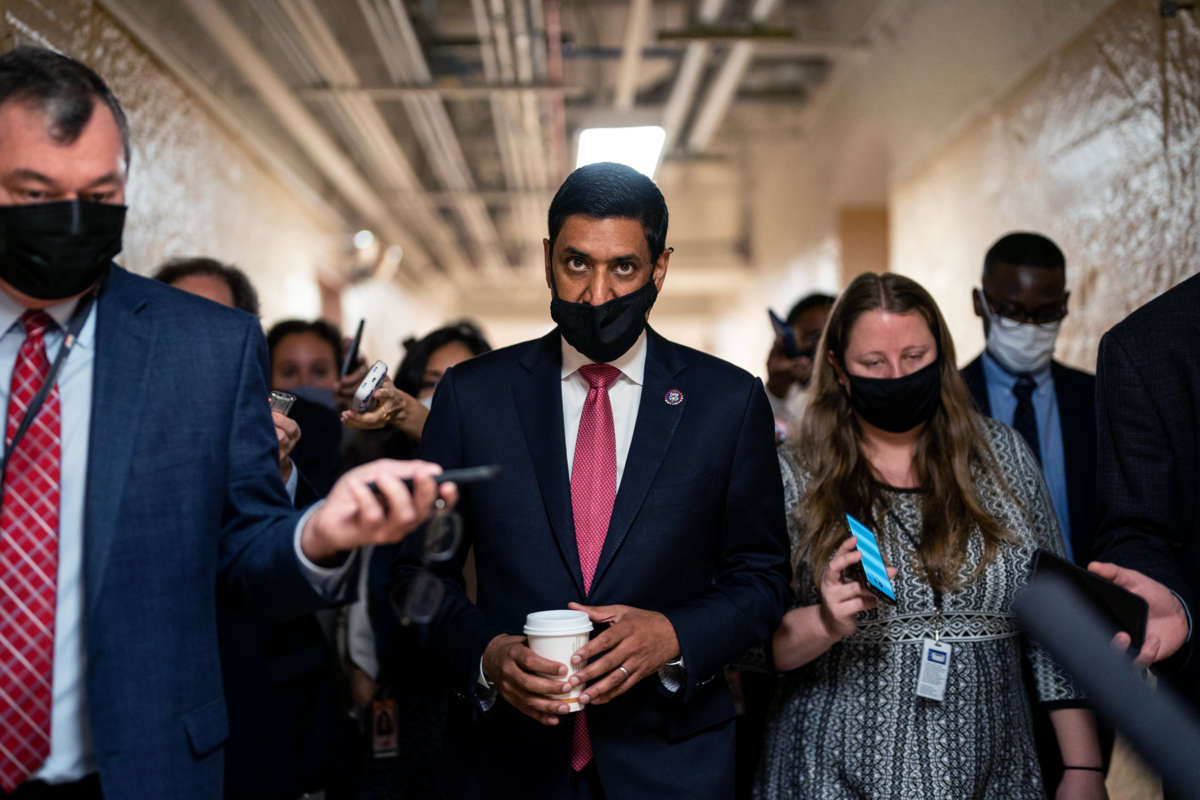Rep. Ro Khanna warned Tuesday that the Biden administration’s plan to restart federal student loan payments in February could hurt Democrats’ chances in the upcoming midterm elections by placing an additional financial burden on millions of people, right in the middle of a deadly pandemic.
In recent weeks — amid the rapidly spreading Omicron variant and a still-unsteady economic recovery — the Biden administration has come under growing pressure to extend the student loan payment pause and cancel at least a portion of the roughly $1.7 trillion in federal student loan debt saddling tens of millions of people across the U.S.
But the administration has thus far refused to commit to doing either.
Speaking to reporters last week, White House Press Secretary Jen Psaki said that “a smooth transition back into repayment is a high priority for the administration,” an indication that the Department of Education has no intention of extending the freeze a third time.
Asked about President Joe Biden’s campaign promise to cancel $10,000 in student loan debt per borrower, Psaki said during a Monday briefing that “if Congress sends him a bill, he’s happy to sign it.”
Legal experts and campaigners say Biden has the authority to cancel federal student loan debt via executive action, but the president has declined to take that route despite the proposal’s popularity.
A survey released Tuesday by the progressive polling outfit Data for Progress showed that 70% of U.S. voters support the pause on federal student loan payments during the ongoing pandemic.
Congress already sent a bill to the President…in 1965. It's called the Higher Education Act. In that bill Congress authorized the executive branch to cancel all federal student debt. https://t.co/jxoBDH7QKI
— The Debt Collective (@StrikeDebt) December 14, 2021
Restarting federal student loan payments could inflict significant harm on borrowers and the broader U.S. economy. The Roosevelt Institute estimated in a recent analysis that federal student loan borrowers were paying an average of $393 per month before the pause was enacted in March of 2020, the early stages of the coronavirus pandemic.
If the Education Department lifts the payment freeze, the Roosevelt Institute warned, $85 billion could be drained from the U.S. economy next year.
Teen Vogue’s Lexi McMenamin argued in an op-ed Tuesday that Biden’s intention to end the payment pause in fewer than 50 days is “a betrayal to his voters.”
“There’s no excuse for the choice to resume payments, especially during an election year when Democrats still haven’t nailed down their strategy,” McMenamin wrote.
More than 200 advocacy organizations — including the Student Borrower Protection Center and the ACLU — similarly argued in a December 8 letter to Biden that “payments should not resume until your administration has fully delivered on the promises you made to student loan borrowers to fix the broken student loan system and cancel federal student debt.”
“You ran for president on the promise that you would reform the student loan system to ensure that student loan payments would be affordable for all,” the groups wrote. “It is critical that your administration continue to deliver on your promises made to student loan borrowers and their families before ending the pause in payments and collections.”
Join us in defending the truth before it’s too late
The future of independent journalism is uncertain, and the consequences of losing it are too grave to ignore. To ensure Truthout remains safe, strong, and free, we need to raise $46,000 in the next 7 days. Every dollar raised goes directly toward the costs of producing news you can trust.
Please give what you can — because by supporting us with a tax-deductible donation, you’re not just preserving a source of news, you’re helping to safeguard what’s left of our democracy.
